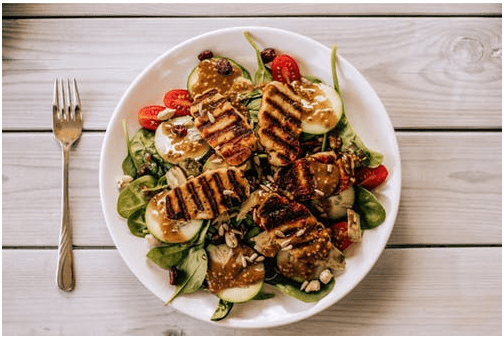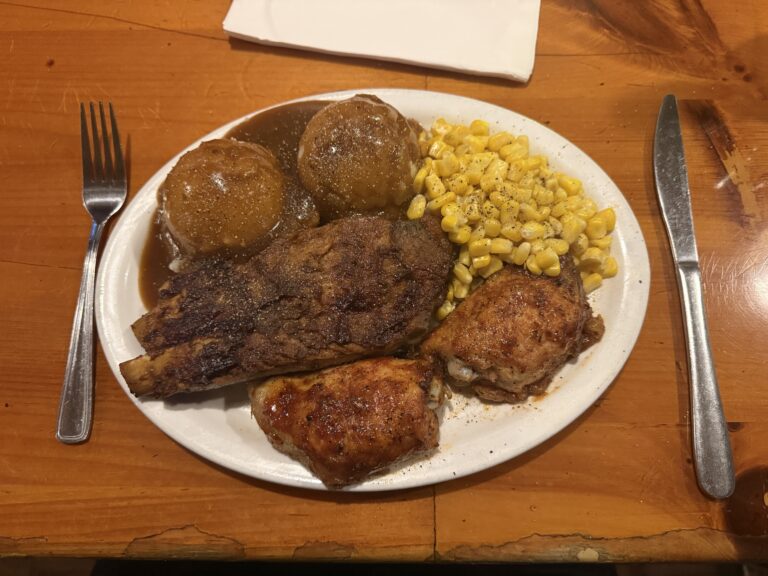 Our health and lifestyle is one crucial aspect that we tend to easily forget as we run our daily tasks. This is practically seen as most of the time we tend to eat that which we crave for instead of what our body really needs. This brings us to the question of meal and diet planning.
Our health and lifestyle is one crucial aspect that we tend to easily forget as we run our daily tasks. This is practically seen as most of the time we tend to eat that which we crave for instead of what our body really needs. This brings us to the question of meal and diet planning.
There’s no doubt that a majority of us fail to plan our meals because again, we simply never make the time to do so. You need to bear in mind that meal planning can be effective in improving your overall body health, especially if you are someone that works out on a daily basis. Now since you’re aware of how important it is to plan for your meals,
Here are a few tips that you can use to make it a success.

1. Learn to Eat a Balanced Diet
Food is essential for the nourishment of our bodies. This is why it feels nearly impossible to run a whole day or two without having anything to eat. You need to understand that our bodies are designed with complexity and need to acquire the right kind of food in order to achieve optimum health levels. This means that what you eat is exactly what your body will become.
What do I mean by this? If you develop a habit of eating fatty foods that have a high cholesterol amount, you risk being obese and ultimately becoming prone to heart-related diseases. On the other hand, developing a discipline of eating a balanced diet that comprises of carbohydrates, proteins, and vitamins will ensure your body is getting all the right nutrients.
2. Look for Recipes
After you’ve identified the meal combinations that make up a balanced diet, you need to search for recipes. The best place to find such information are cookbooks, shows, and the internet. As you look for the right recipes, make sure that the ingredients are locally available and you have the right equipment to make those dishes. In other words, look for recipes that are relevant and simple.
3. Get Organized by Creating a Calendar
The entire purpose of a meal plan is to make sure that you know what you are going to eat every day whether it’s lunch or supper. I leave out breakfast because most people prefer cereals in the morning. During this stage, you assign specific meals to certain days. You can write it down on your phone or physical calendar and stick the paper in the fridge.
4. Come up with A Theme for all Meal Days
Another way to plan your meals for a week is by creating a theme for each day. Perhaps, you have a veggie day whereby all meals are vegan. The recipe for that day shall involve recipes made up of vegetables and other non-animal edibles. A theme is a fun way to organize the meal plan. So go ahead and get creative with your themes. For example, you can go a step further and create costumes for specific themes.
5. Be purposeful with the Shopping
After you’ve decided on what you’re going to cook for the entire week, you can go to the grocery list and buy all the ingredients for that week’s recipe. Some items can be bought days before the actual day of cooking while others have to be acquired on the day of preparation. This is especially true for vegetables – always go for the fresh ones.
6. Prioritize the Cooking
Immediately you come back from the grocery store, begin preparing the ingredients for cooking. Don’t sit and postpone the cooking to a later time because you’re likely to get comfortable and avoid cooking altogether. Therefore, put the keys aside and begin chopping the onions once you arrive from the grocery store. Additionally, the earlier you prepare the meal, the quicker it cooks, allowing you to satisfy your hunger fast.
7. Put the Necessary Items in the Freezer
Once you have began the preparations for the meal, you have to put some of the groceries that you won’t use that day in the freezer to maintain their freshness. Likewise, you may have to prepare a sauce for the current recipe and then allow it to get cold for later. Therefore, always put the items that belong to the freezer in their rightful place.
8. Plan for Leftovers
There’re certain times where you’ll cook, but still end up with the same food the next morning. Unfortunately, most people cannot eat the leftovers the next morning and will want to move on to another meal. To be honest, eating the same food day-in-day-out can be boring due to monotony in taste.
However, you can still get a little creative by preserving the leftovers to be eaten throughout the week until it’s completed. This doesn’t mean that you have to eat it every single day, but you can choose to schedule them as spaced meals during the week. This is a smart way to reduce food wastage and stop you from having to eat the same food over and over again consecutively.
9. Exercise
The most important part of any meal plan is exercising. Gary Preacher from the official HCG Diet site says any physical movement will help curb your appetite, even if you just take a short walk to get the mail. You should stick to your exercise routine. Furthermore, engaging in physical activity helps you avoid cravings and eating all the time which is an unhealthy habit.
10. The Meal Plan
In case, you were wondering what to put in your meal plan, here a few suggestions. On Monday, you can have a banana and egg toast for breakfast. It’s good to avoid snacking until lunchtime, but if you must do so, go for berries because they are healthy and have less calories. For lunch, you can have vegetarian Quesadilla, and dinner can include roasted chicken and peanut or any other nut noodle salad.
You can follow the same guideline for the remaining days, making sure that you have some fruits in the morning, a slightly vegetarian lunch, and some white meat for dinner. Remember to take between one to two portions of every meal so that you don’t overeat.
Planning for your meals is easier when done on a weekly basis. It’s important to have a schedule that allows you to be creative and still stick to a balanced diet for your health’s sake. At the end of the day, you need to make sure that what you eat is beneficial now and in the long-term.












